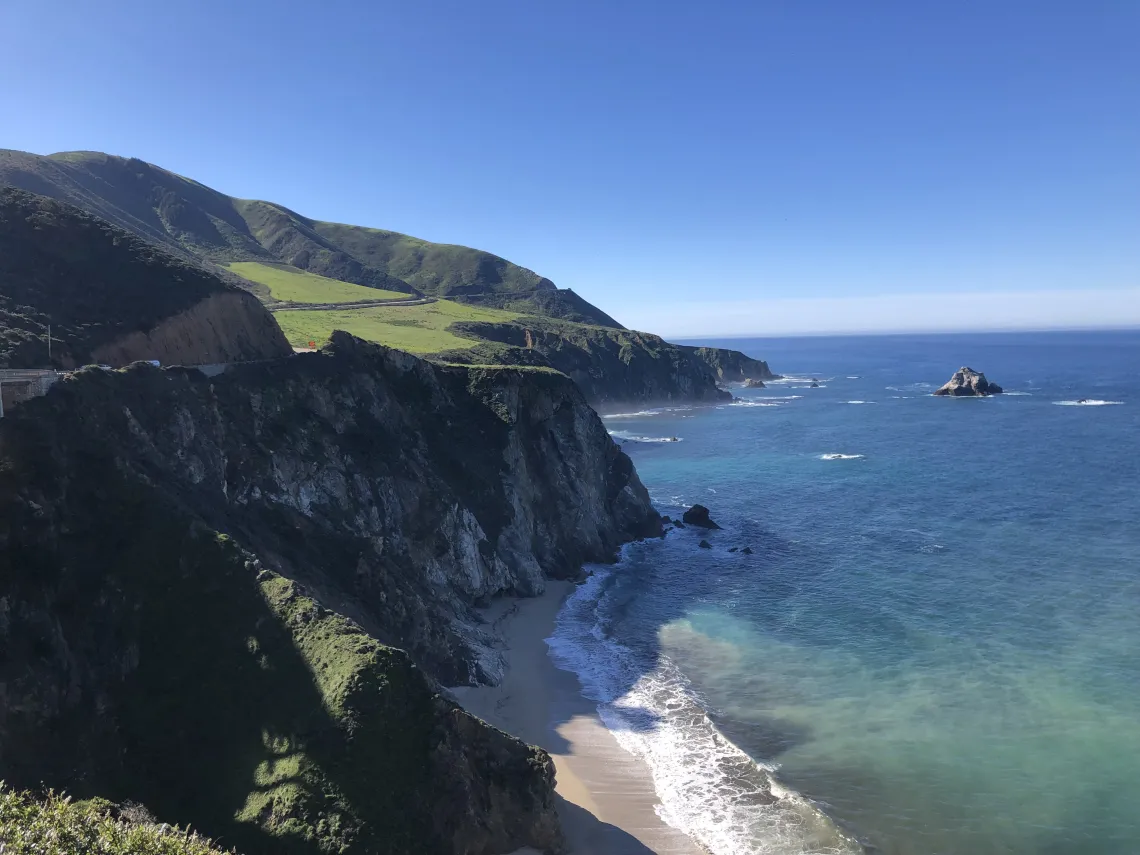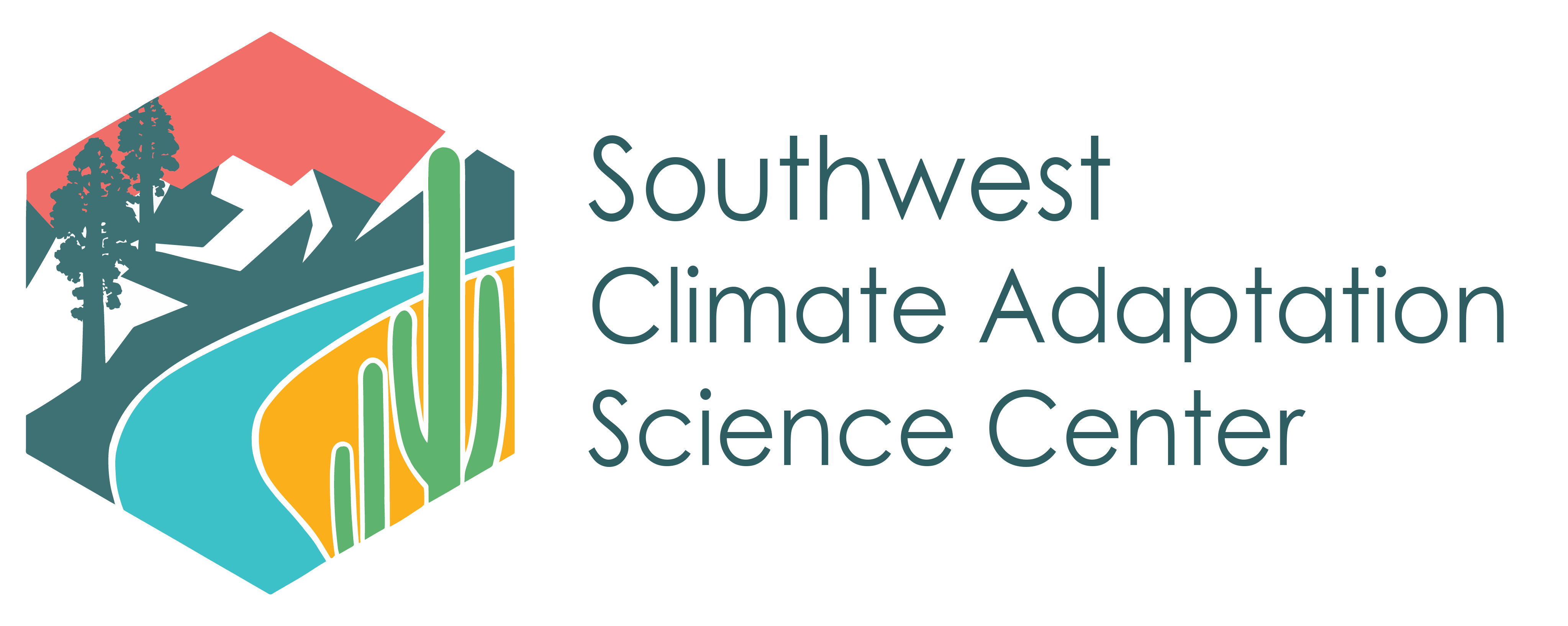What’s Needed to Effectively Manage the California Coast?

Coastal ecosystems face many challenges, from both climate and non-climate factors—overdevelopment, rising sea levels, ocean acidification, sediment management—the list goes on and on. When it comes to managing and conserving coastal ecosystems, however, the biggest impediment is a lack of understanding about those systems, according to coastal resource managers who participated in a recent workshop hosted by the University of California-Los Angeles (UCLA), and the SW CASC*. The aims of the workshop, held in August 2019, were to begin a dialog between climate scientists and coastal resource managers, foster an atmosphere of collaboration and engagement between the two groups, identify specific research needs, and create new partnerships. Below, we summarize the needs identified at the workshop. For a full accounting of the workshop, please see the full report above.
Participants in the one-day workshop were from multiple levels of government, non-profit organizations, and universities. The participants included managers from agencies and organizations such as the Bureau of Ocean Energy Management, U.S. Navy, National Park Service, California Coastal Conservancy, Santa Monica Bay Restoration Commission, and Heal the Bay. All attendees participated in a pre-workshop survey to assess initial thoughts on priority topics, which assisted workshop organizers in guiding panel discussions and supporting engagement on subjects of topical interest. Guided by the survey responses, organizers focused the workshop sessions on important environments (coastal, marine) and decision-makers (state agencies, federal agencies/other organizations). This helped to highlight the participants’ insights, expertise, synergies and divergent points of view. Four lively panel discussions set the stage for an open final discussion, in which participants identified priorities for future research, and recommendations to improve management and collaboration.
Management is primarily focused on protecting natural resources, making sure the public has access to the coast, and balancing these priorities with development. Thus, it is not surprising that participants were largely concerned about topics related to responding to sea-level rise (SLR). For wetlands, this discussion was focused on wetland migration and ‘elevation capital’ (area at relatively high elevation that allows for salt marshes to migrate in response to SLR). Participants urged that wetlands be managed in a way to ensure they have sufficient sediment supply to keep pace with SLR. Thus, participants assigned high importance to research on sediment management and sediment supply, along with investigations of the ecological impacts of beach nourishment projects.
And what about the species that live in these habitats? Research indicates that species ranges will shift, and species will need to adapt to changing conditions. Participants put a premium on better understanding these shifts, to aid in prioritizing species for adaptation interventions and to inform future project design and monitoring programs. Another important need identified by managers is collection of data documenting these shifts—especially the abundance and distribution of intertidal species. Equally as important, and currently lacking, is regional and local ocean acidification data, coupled with long-term intertidal species data, and enhanced modeling of ocean acidification and hypoxia.
Perhaps the most overarching need that workshop participants identified was more opportunities for collaboration and communication, including collaboration between managers and scientists, collaboration between managers who work in freshwater systems and those who work in ocean systems, and more frequent communication of recent scientific research to managers. Managers suggested more networking opportunities, like this workshop, where scientists and managers can meet to create better connections and increase opportunities for collaborations. Often, one agency or group may have resources or data that can benefit another, but lack the interpersonal connections or access to expertise that would help to catalyze action on a project. Managers also articulated a need for advice on the correct implementation of models and data usage, which could be met by a peer-review process; they recommended that university researchers familiar with particular models and data serve as peer reviewers.
Finally, managers suggested the SW CASC implement a formal service for managers and scientists to submit requests for advice to the SW CASC. They specified that the service could assign requests to subject matter experts. We are happy to say that the SW CASC is working on addressing this need, by developing a mechanism by which managers and others can submit questions, and receive an answer from an expert in that field. Planning for a demonstration project is in the early stages of development.
*This workshop is the first of several planned over the next three years, as part of a project to spur collaborative development of actionable science and adaptation strategies within coastal communities in California. UCLA and the SW CASC aim to use these workshops as a place to build and maintain relationships, as well as understand the most recent needs and priorities of coastal resource managers, planners, and agency researchers to develop priorities and best practices for coastal restoration and conservation in the face of climate change.
Read the full workshop report:

